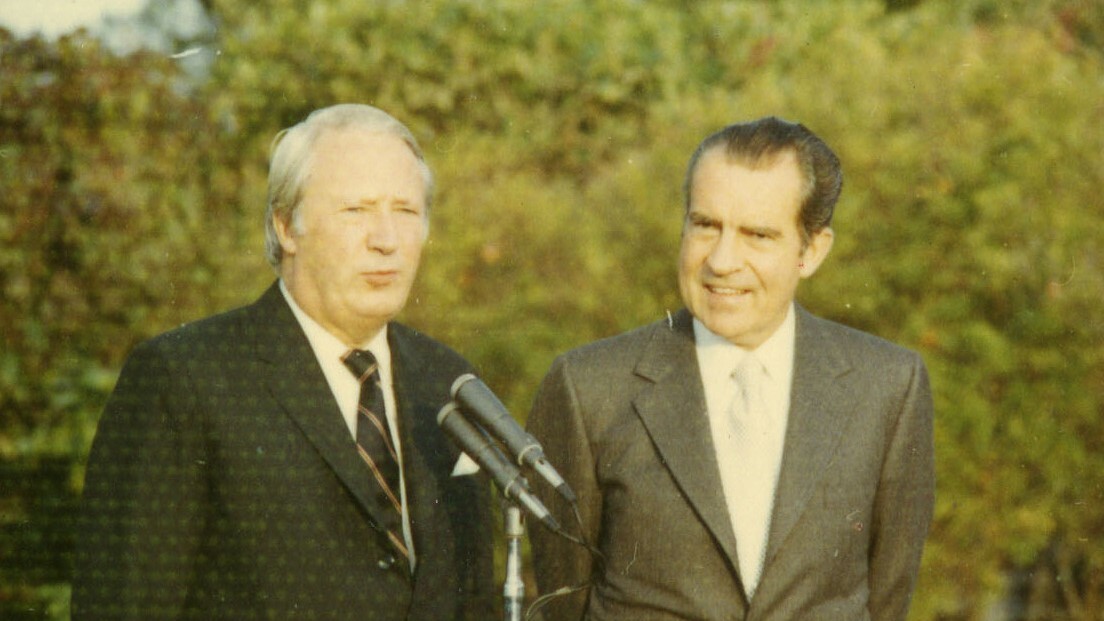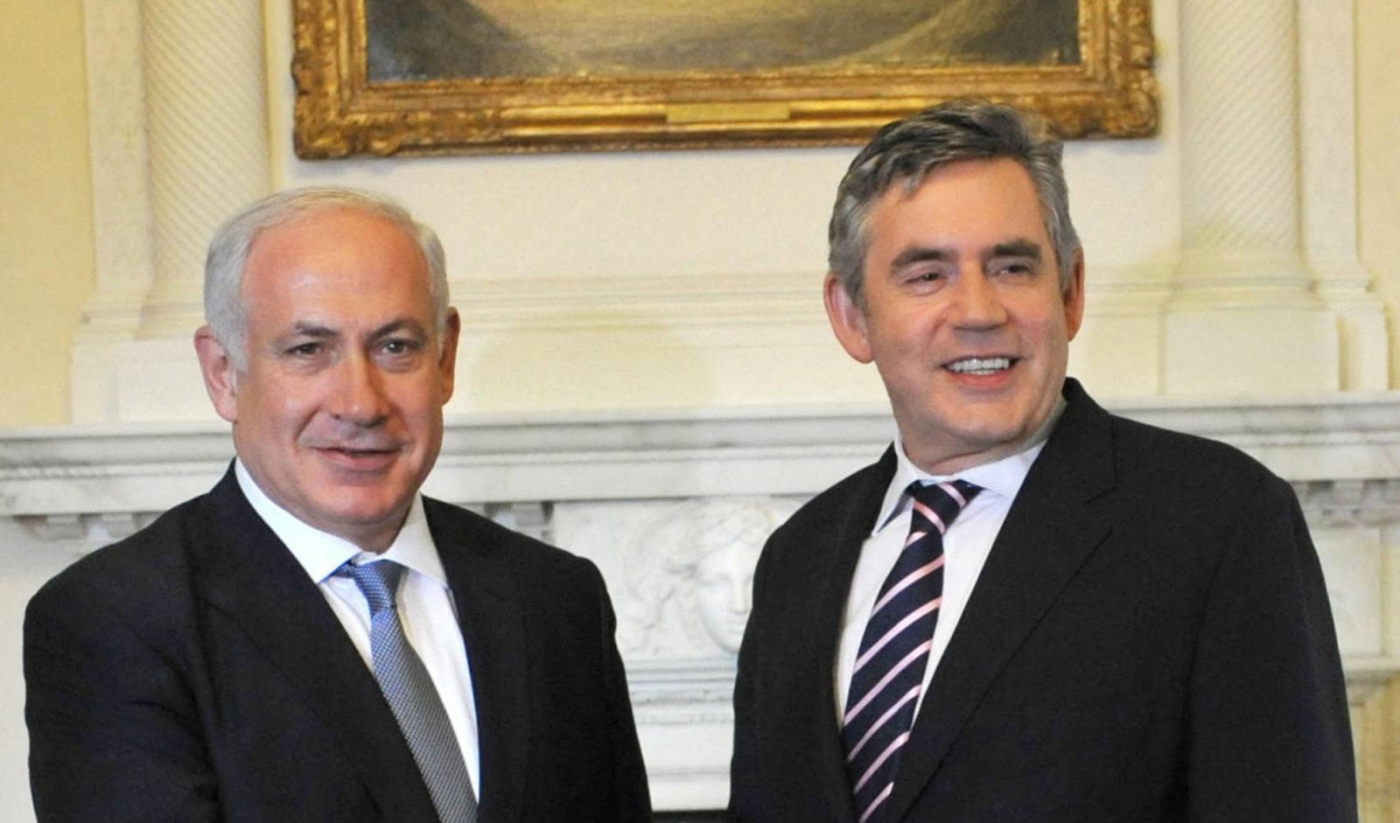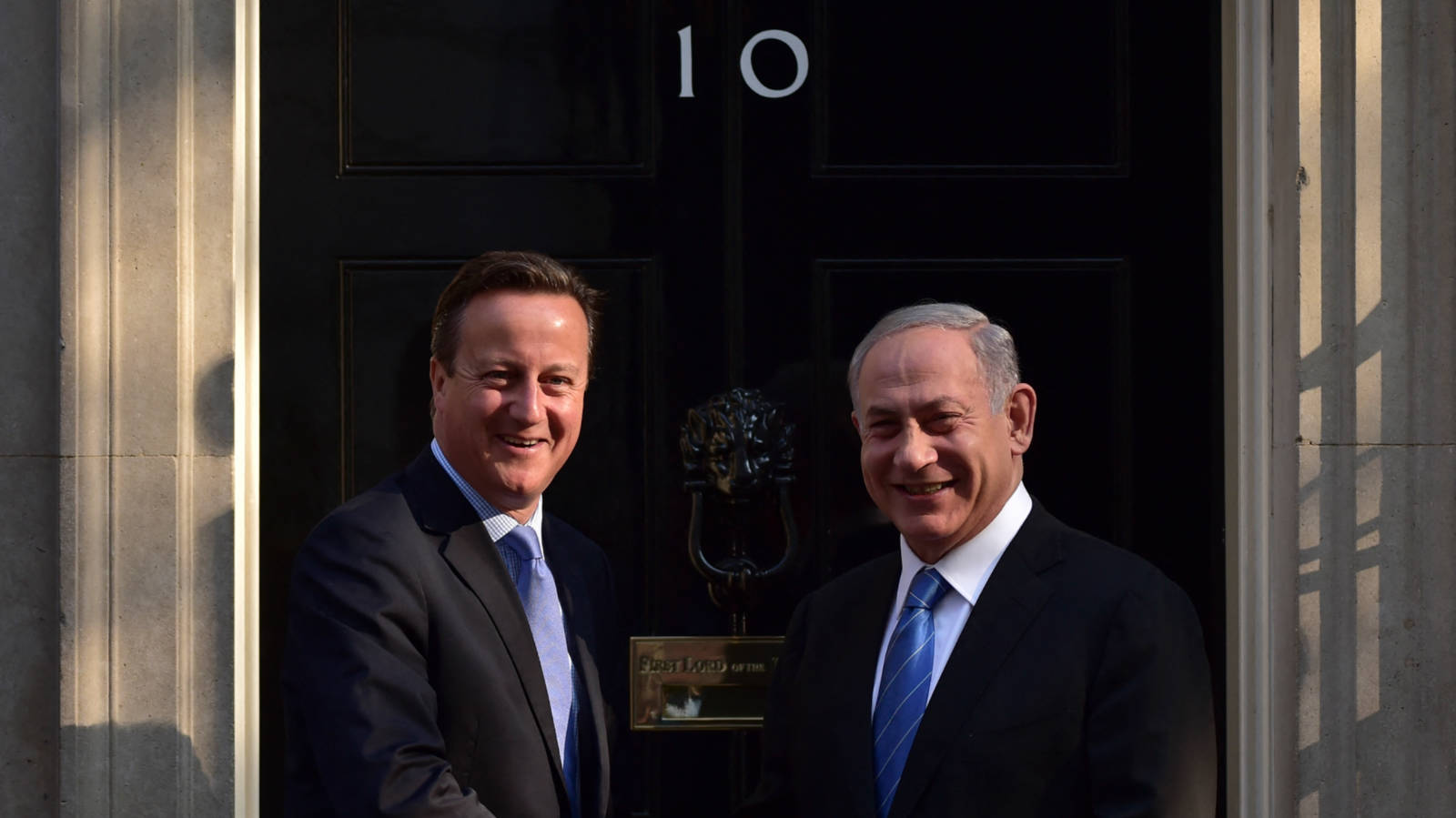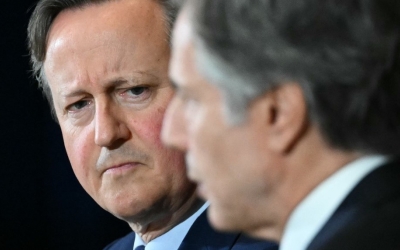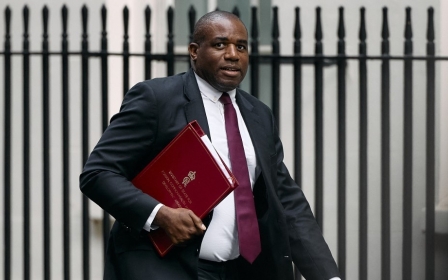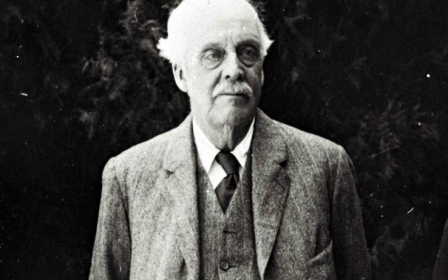The six British prime ministers who have restricted arms sales to Israel
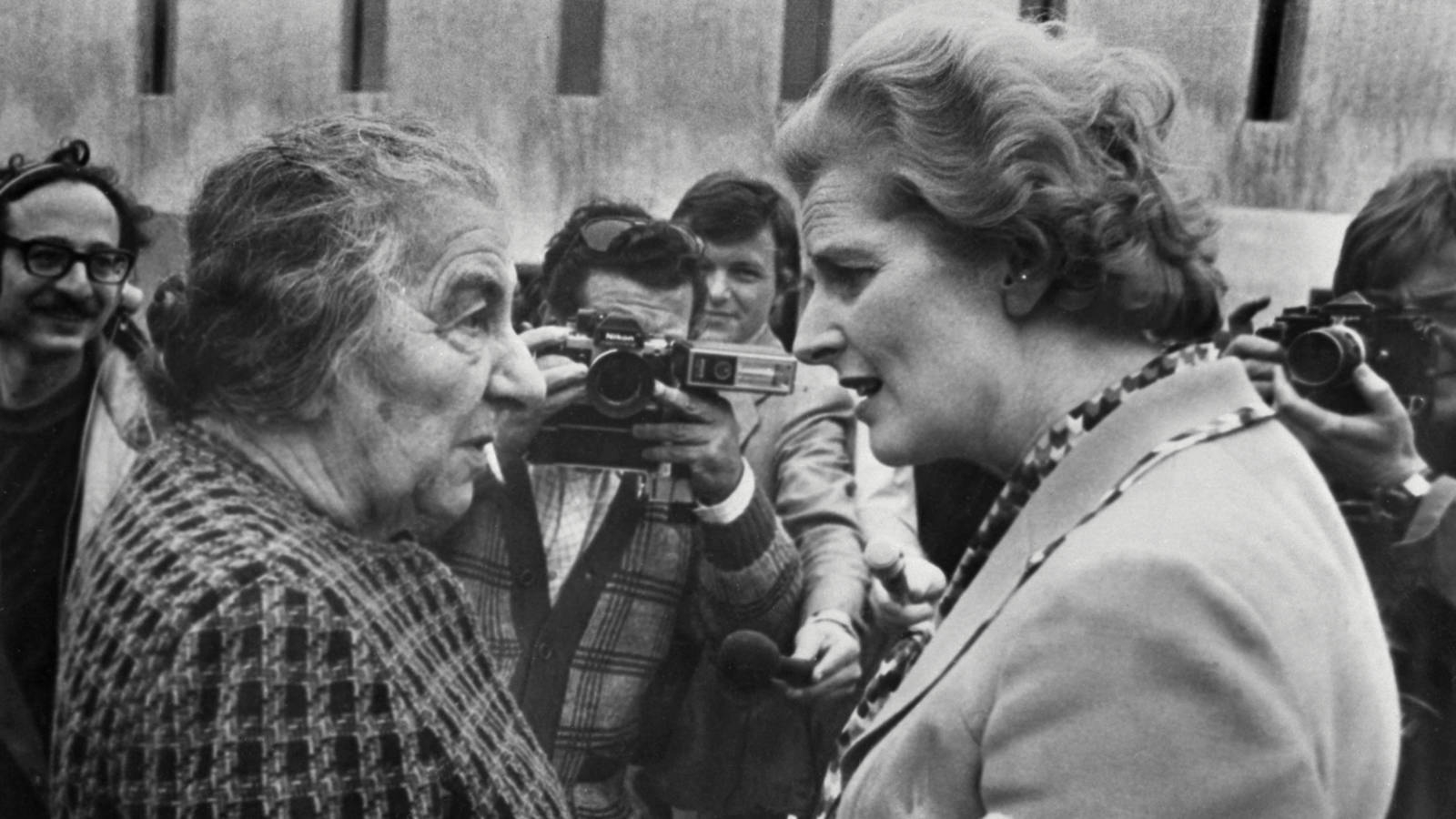
The UK’s Labour government has announced that it will suspend 30 arms exports to Israel over concerns they could be used by the Israeli military to violate international humanitarian law in Gaza.
More than 100 UK export licences for the sale of weapons, military equipment and other controlled items to Israel have been approved since October 2023.
The decision, announced by Foreign Secretary David Lammy in parliament on Monday, marks a major change to British foreign policy.
But it is far from unprecedented.
Keir Starmer has now become the sixth British prime minister to have restricted arms sales to Israel.
New MEE newsletter: Jerusalem Dispatch
Sign up to get the latest insights and analysis on Israel-Palestine, alongside Turkey Unpacked and other MEE newsletters
The new policy, rather than taking the country into uncharted territory, brings the UK closer to its historical stance towards Israel.
It also highlights how unusual the stance of Rishi Sunak’s Conservative government was. After the 7 October Hamas-led attack, it promised unconditional support for Israel and then consistently refused calls to restrict arms sales, even several months into an unprecedented Israeli assault on Gaza that has now killed more than 40,000 Palestinians.
Three previous Conservative prime ministers have restricted arms exports to Israel. Now Keir Starmer is the third Labour prime minister to have done so.
1. Edward Heath
Edward Heath was Conservative prime minister from 1970 to 1974. While he was in office, war broke out on 6 October 1973 when Egypt and Syria launched a two-front attack against Israel. Their goal was to regain territory Israel had taken from them in 1967.
Israel was caught off-guard. Oil-producing Arab countries enforced an embargo on the United States and other countries supporting Israel. More than 2,600 Israeli soldiers were killed by the time the war was over in late October.
Rather than offering unequivocal support to Israel, as Sunak’s government would later do, Britain took an approach that Edward Heath defended as “genuinely even-handed”.
Heath halted weapons supplies both to Israel and its Arab opponents.
Keen not to draw the ire of Britain’s Arab oil providers, he went further by refusing to allow US planes supplying Israel with weapons to use Britain’s military bases.
A week into the war, Foreign Secretary Sir Alec Douglas-Home told the Conservative Party conference that he had known “it would not be psychologically possible for the Arabs to go on gazing indefinitely at their own lands without the eruption of war”.
Abba Ebban, who was Israel's foreign minister, later described Britain’s policy, which had infuriated the Americans, as an “especially harsh blow” to Israel. This had not been because of the amount of weapons Israel was deprived of - as with today, the number of weapons being sold from Britain were “not vast”.
Instead the real impact, Eban believed, was that “the British example affected other European countries” and encouraged them to take a similar approach, helping to isolate Israel.
2. Margaret Thatcher
Margaret Thatcher, in office 1979-90, had been in Edward Heath’s cabinet during the 1973 war and internally opposed an embargo on Israel, pointing out that British public opinion was against it.
And after taking office, she became known as Britain’s most pro-Israel prime minister ever - she was the first to visit Israel while in office.
But Thatcher’s backing for Israel was far from iron clad.
An early sign of this was when in 1980 the prime minister signed the Venice Declaration, joining eight other European countries in formalising Britain’s concern about Israeli settlements in occupied Palestinian territories.
“You cannot be selective in your defence of law - you cannot say, 'I like that law, I will uphold that one, I will not uphold the other',” she said in June 1981, denouncing the Israeli bombing of Iraq’s Osiraq nuclear reactor.
The next year, Israel invaded Lebanon, killing 20,000 people in a war initially backed by US President Ronald Reagan.
Thatcher refused to go along with US policy, telling Reagan that a “balanced policy” was best and warning that “unlimited support for Israel can only lead to growing polarisation and despair in the Arab world”.
Publicly, Foreign Secretary Francis Pym opposed Israel’s invasion.
Thatcher, moreover, condemned massacres committed by Lebanese Christian militiamen with the Israeli army’s complicity as “pure barbarism”.
Most significantly, Britain imposed an arms embargo on Israel that lasted until 1994, also withdrawing an invitation to Israel to attend a British Army Equipment Exhibition.
When Israeli Prime Minister Menachim Begin wrote to Thatcher asking her to reconsider, the prime minister did not even respond.
In parliament on Monday, Lammy noted that he had not gone as far as Thatcher when justifying his decision to suspend just 30 arms exports out of around 350.
3. Tony Blair
Tony Blair, Labour prime minister from 1997 until 2007, led a largely pro-Israel government. He was much more reticent to criticise Israel than previous leaders had been and aligned Britain with the US’s staunch support for Israel.
But, in April 2002, during the Second Intifada, it was revealed that Britain had secretly imposed an arms embargo on Israel.
The embargo applied to military equipment that could be used in Israel’s offensive in the occupied Palestinian territories.
Blair’s government, unlike previous administrations, was following rather than leading other European countries, namely Germany and France, in imposing restrictions.
The UK government said it enacted its embargo because Israel had broken a promise it had made in 2000 not to use British equipment against the Palestinian Authority.
Blair’s government, in fact, privately accused Israeli forces of acting more like “the Russian army than that of a civilised country”, according to newly released official files reported by The Guardian.
One British officer, who had observed Israeli military operations in the occupied West Bank, Gaza Strip and East Jerusalem, described the military as “a second-rate, ill-disciplined, swaggering, and bullying force”.
4. Gordon Brown
Gordon Brown, Blair’s successor, also imposed restrictions on arms sales to Israel when it launched an attack on Gaza dubbed Operation Cast Lead in 2009, which killed over 1,400 Palestinians.
Brown’s government revoked export licences for weapons on Israeli navy missile boats because they were being used during the assault.
As with Blair, the move was kept secret.
This time, Israeli officials revealed that it had happened.
Such sanctions had become so expected from Britain that officials were sanguine about the restrictions, with Israeli Foreign Minister Avigdor Lieberman saying that the Brown government’s policy was just one of “many embargoes”.
5. David Cameron
David Cameron, who until the election was Rishi Sunak’s foreign secretary, was Conservative prime minister from 2010 to 2016.
As leader of the opposition, Cameron allowed his shadow foreign secretary, William Hague, to strongly criticise Israel’s war on Lebanon in 2006.
"I think we can say that elements of the Israeli response are disproportionate,” Hague told MPs in the House of Commons, going on to cite "attacks on Lebanese army units, the loss of civilian life and essential infrastructure, and such enormous damage to the capacity of the Lebanese government".
As a result of that remark, the Conservative Friends of Israel reportedly secured a meeting with Cameron in which the Tory leader gave an undertaking not to use the word "disproportionate" again.
And Cameron never did.
As prime minister of the coalition government between 2010 and 2015, he was such a firm supporter of Israel that Haaretz suggested he was the "most pro-Israel British PM ever".
Yet even Cameron’s backing for Israeli military action was not unconditional.
Following Israel’s onslaught on Gaza in 2014, the British government announced it would suspend some of its arms exports to Israel if hostilities resumed.
The business department said a review of exports had identified 12 licences for components, including equipment for tanks and combat aircraft, which the Israeli military could use in Gaza.
The move came after prolonged demands from the Liberal Democrats, the other party in the governing coalition, to suspend arms exports to Israel.
Cameron had resisted those demands, insisting that Israel has a "legitimate right to self-defence".
This led to Baroness Sayeeda Warsi, a Muslim foreign office minister, resigning a week before the restrictions were announced in protest.
The fact that it was only after the war ended that the measures were announced signifies that Cameron was much more willing to tolerate Israel’s military operations than previous prime ministers.
A decade later, Cameron as foreign secretary consistently resisted calls to suspend arms sales during Israel’s current war on Gaza, despite reports claiming that the government had received legal advice saying Israel had broken international law.
Thus the new Labour government’s approach takes it further away from that of Cameron the foreign secretary, but closer towards Cameron the prime minister.
Middle East Eye delivers independent and unrivalled coverage and analysis of the Middle East, North Africa and beyond. To learn more about republishing this content and the associated fees, please fill out this form. More about MEE can be found here.


